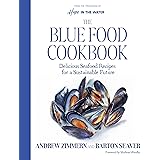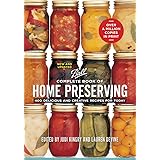The organic food movement began with a powerful vision: healthier food, grown without harmful chemicals, and in harmony with the environment. It evoked images of small, pristine farms, local produce, and a gentle footprint on the planet. This dream has blossomed into a colossal $50 billion industry, transforming our grocery aisles and shaping countless consumer choices. Yet, with such significant growth, questions inevitably arise. Is this massive shift truly delivering on its initial promises, or has the journey from “hippie dream” to corporate giant complicated the picture?
As the accompanying video explores, the reality of organic food is often far more complex than the headlines suggest. It’s a landscape filled with nuanced scientific findings, varying regulations, and passionate debates. For consumers navigating these waters, understanding what “organic” truly signifies becomes essential. It’s about looking past the marketing spin and truly grasping the details, which is exactly what we’ll do here.
What Does ‘Organic’ Really Mean? Unpacking the Label
Most people associate organic food with the absence of pesticides. However, this is a common misunderstanding. Organic farmers do use pesticides; they just have to be derived from natural sources. Consider this: there are over 20 chemicals approved for organic use in the United States. It’s like comparing two types of keys: one is made in a traditional workshop, the other in a modern factory. Both can unlock a door, but their origins differ. What’s more, some naturally derived pesticides, like copper sulfate used on organic apples, can actually be more toxic to humans and wildlife than their synthetic counterparts. Just think of cyanide — it’s a natural compound, but you wouldn’t want it on your dinner plate.
The definition of “organic” also varies globally. Different countries operate under different rules. In the United States, an organic label typically means no synthetic fertilizers, no genetically modified organisms (GMOs), and no synthetic pesticides. Instead, farmers rely on methods like:
- Crop rotation, which helps maintain soil health and naturally deter pests.
- Natural fertilizers, such as compost and manure.
- Natural pesticides, often plant-based or mineral-derived.
- Biological pest control, using beneficial insects or natural predators.
- Manual weeding or mulching to control unwanted plants.
The degree of “organic-ness” matters too. If a product label in the US simply says “organic,” it must contain at least 95% organic ingredients. If it claims “made with organic ingredients,” it only needs to be up to 70% organic. Only a “100% organic” label guarantees that every ingredient meets the standard. European Union rules are similar but often stricter on labeling, and they even factor in animal welfare standards.
It’s important to note that “organic” doesn’t automatically mean local, small-scale, or family-run. There are massive organic farms that operate on an industrial scale, shipping their produce worldwide. The boundary between conventional and organic farming can blur; many conventional farms adopt some organic practices, and some large organic operations resemble their conventional counterparts.
The Environmental Footprint of Organic Farming
When you picture organic farming, you might imagine a pastoral scene with happy animals roaming lush fields. This idyllic image, while appealing, doesn’t always reflect the reality of large-scale organic operations. Yet, organic farming does offer some distinct environmental advantages.
The Good News for the Planet
-
Improved Soil Health: Organic farms often boast richer, more vibrant soil. This means the soil contains more living organic matter, which is crucial for nutrient cycling and water retention. It acts like a sponge, holding onto precious water and preventing erosion.
-
Carbon Sequestration: Healthy soil is a powerful tool in combating climate change. Organic methods can be better at storing carbon in the soil, leading to potentially lower greenhouse gas emissions over time. Think of the soil as a bank, and carbon as valuable deposits it holds onto.
-
Reduced Chemical Runoff: With less reliance on synthetic pesticides and fertilizers, organic farms typically have less chemical runoff polluting waterways. This protects aquatic ecosystems and ensures cleaner drinking water sources.
-
Energy Efficiency: Organic farming can use less energy overall, particularly because it avoids the energy-intensive production of synthetic fertilizers.
The Environmental Trade-offs
While the benefits are clear, organic farming also presents environmental challenges, particularly around land use. Organic crop yields, on average, are 20 to 25% lower than those from conventional farms. This difference isn’t minor; it means producing the same amount of food requires significantly more land. More farmland translates directly into less natural habitat for wildlife, potentially impacting biodiversity. It’s like needing a bigger canvas to paint the same picture, which leaves less room for other art.
This yield difference also complicates environmental calculations. For example, while an organic farm might use water more efficiently per acre, if it needs 25% more land to produce the same quantity of food, the total water usage per unit of food might end up being similar to conventional farming, or even higher. The same logic applies to greenhouse gas emissions. A comprehensive 2017 meta-analysis, examining over 700 agricultural production sources, found that organic systems often have similar greenhouse emissions to conventional ones, and in some cases, even higher, primarily due to the land use factor.
Furthermore, external factors like location and shelf life play a significant role. Food shipped or flown across the globe, even if organic, carries a substantial carbon footprint. And if organic produce spoils faster due to less protective post-harvest treatments, the environmental impact of wasted food can negate some of its initial advantages.
Is Organic Food Healthier? Separating Fact from Hype
The health aspect is often the biggest driver behind consumers choosing organic. Many believe it’s inherently more nutritious or safer. The science, however, paints a nuanced picture.
Nutritional Content: More Similar Than Different
One of the most common claims is that organic produce is packed with more vitamins and minerals. However, a major review by Stanford University, which analyzed 237 studies, found that organic foods are generally no more or less nutritious than their conventional counterparts. They had comparable levels of vitamins, minerals, and other essential nutrients. Some smaller studies might show slight variations, perhaps a little more vitamin C in some organic produce, but these differences are rarely consistent or significant enough to impact overall health.
An interesting exception lies with antioxidants. Some studies indicate that organic foods can have 20 to 70% more antioxidants. This makes sense from a plant’s perspective: when plants aren’t protected by synthetic pesticides, they have to work harder to defend themselves. They produce more of these natural defense compounds, which happen to be beneficial antioxidants for us. While scientists are still researching the exact benefits of these higher antioxidant levels for human health, it’s a promising area.
GMOs: The Consensus on Safety
Genetically modified organisms (GMOs) often stir strong opinions. However, the scientific community holds a clear consensus: GMOs are safe for consumption. These crops have undergone more rigorous evaluation than almost any other plants we eat. Organizations like the FDA, the American Cancer Society, and the vast majority of scientists affirm their safety. Decades of research have shown no documented occurrences of health issues linked to GMO consumption.
Pesticide Residues: The Lingering Question
The most compelling health argument for organic food centers on pesticide residues. Organic food definitely has lower levels of these residues. We know pesticides are designed to kill pests, so it’s logical to assume they aren’t ideal for human consumption, even in tiny amounts. Agricultural workers, who have higher exposure, face elevated health risks, including certain cancers.
The real debate is whether the trace amounts of pesticides found on conventional food pose a significant risk to the average consumer. Government bodies set strict exposure limits, and foods generally fall well within these guidelines. However, the long-term effects of cumulative exposure to these minuscule amounts are still being researched. Studies linking self-reported organic diets to better health often struggle with causality: people who choose organic food also tend to lead healthier lifestyles overall (less smoking, more exercise), making it hard to isolate the specific impact of the organic food itself. It’s like trying to tell if a better car comes from a particular factory, when the drivers of those cars also tend to be safer drivers. More serious, focused research is needed to provide definitive answers.
So, the bottom line on health? Nutritionally, there’s little difference. The main potential benefit is lower pesticide residue, which for some, offers peace of mind even if the direct health impact remains unclear.
The Cost-Benefit Equation: Is Organic Worth the Price Tag?
Without a doubt, organic food is significantly more expensive than its conventional counterparts. This higher cost is entirely understandable when you look at the factors involved:
-
Increased Labor: Organic farming methods, such as manual weeding or intricate pest control strategies, often require more hands-on labor.
-
Regulatory Process: Obtaining and maintaining organic certification involves a rigorous and often costly regulatory process.
-
Lower Yields: As discussed, organic farms typically produce less food per acre, meaning the cost of production per unit is higher.
For many, the question boils down to value. Does organic food taste better? This is highly subjective, and many studies show no consistent taste difference. For others, the perceived health and environmental benefits justify the extra expense, especially if they follow a “better safe than sorry” philosophy regarding pesticide exposure.
Ultimately, the choice is personal. While some may opt for organic, particularly if managing specific health conditions, it’s crucial not to lose sight of the broader picture of health. Compared to the complex and often debated impacts of trace pesticides or GMOs, the scientific consensus on the dangers of overeating and obesity is stark and unequivocal. Millions of people worldwide suffer serious health consequences and premature deaths directly attributable to obesity. Focusing on a balanced diet, controlling calorie intake, and maintaining an active lifestyle offers far more demonstrable and profound health benefits than simply choosing organic produce.











